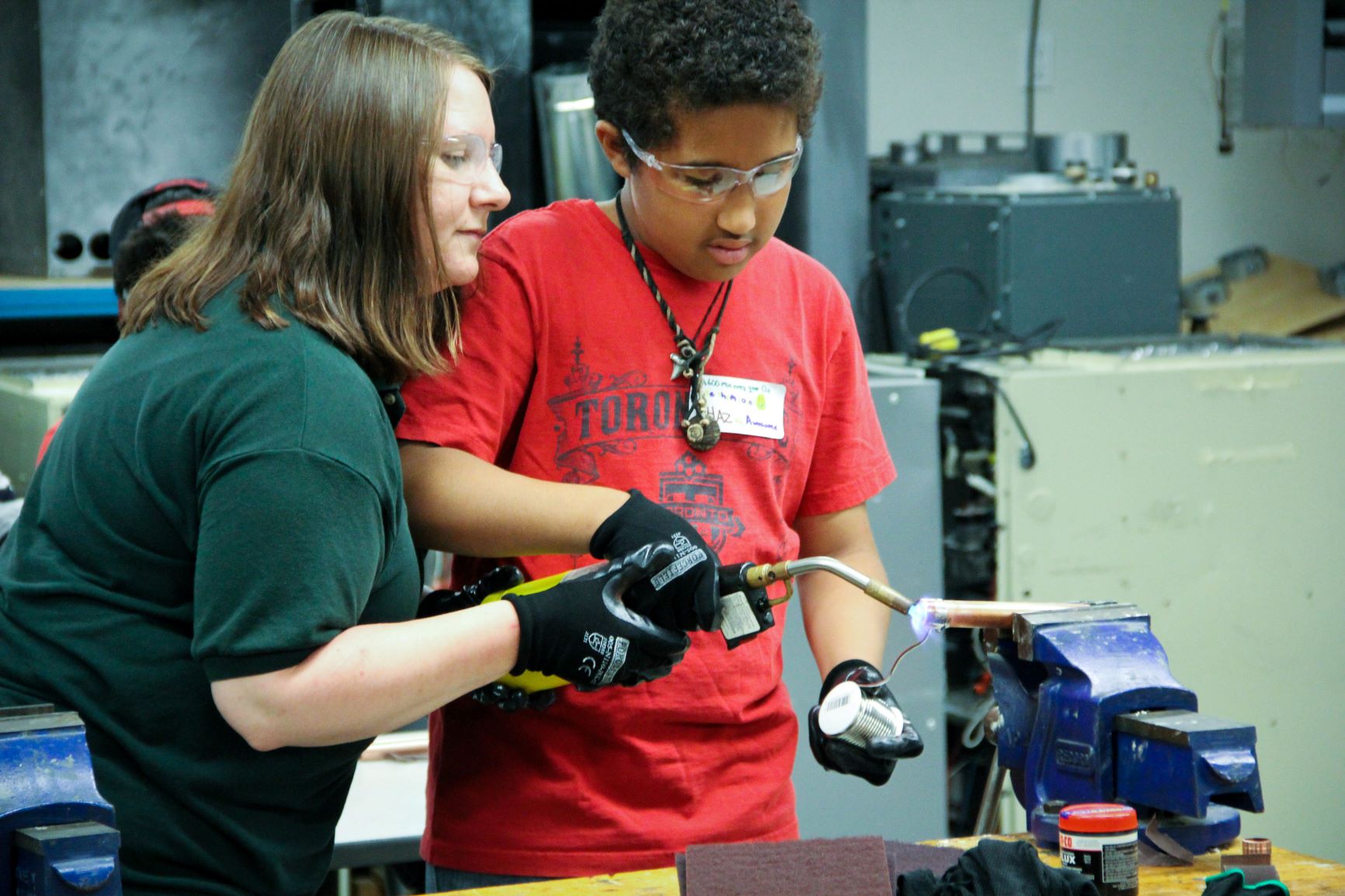Humber College has been selected to lead one of the critical components – Recognition of Prior Learning – within the Young Africa Works in Kenya-Technical Vocational Education and Training (TVET) initiative. The four-year initiative will run through a partnership between Colleges and Institutes Canada (CICan) and the Mastercard Foundation.
Humber College, a member institution of CICan, will provide learners with formal credit for their experience and knowledge obtained outside of an academic setting. Acquiring formal credit will result in increased recruitment, retention, and transition of young people to work opportunities. An anticipated 10,000 students are expected to benefit from this project that is part of the Mastercard Foundation's Young Africa Works strategy. The Foundation’s strategy aims to enable five million young people in Kenya to access dignified and fulfilling work by 2030.
“What’s exciting about this work is it recognizes that learning, the acquisition of important transferrable skills, can happen anywhere. It is a concept that is bigger than classrooms,” said Daniel Hailu, regional head, Eastern and Southern Africa at the Mastercard Foundation. “It’s important to give validation to the relevant, transferable skills that young people pick up in the course of life and informal work, and to ensure that this recognition we render has social significance. We need to cultivate an inclusive idea of what education means because that’s part of how we enable dignified work for young people.”
The Recognition of Prior Learning (RPL) component within Young Africa Works in Kenya-TVET initiative is the first project of its kind in Kenya. Humber will support the national government's efforts to achieve full RPL implementation across Kenya's 25 TVET institutes and Centres of Excellence.
Humber's International Development Institute (IDI) will lead a consortium that includes NorQuest College and Red River College, in partnership with Kenyan lead partner, the Kenya National Qualifications Authority, the Technical and Vocation Education and Training Authority, and the Ministry of Education. The consortium will engage government, institutional, and community partners in RPL initiatives, including developing guidelines and tools, training the trainers to be assessors, and increasing access to youth services.
"The Kenyan workforce is driven by an estimated 80 per cent of individuals from the informal sector. This collaboration with the Kenyan government will provide pathways for young people, especially uncertified artisans and skilled manual labourers, to gain recognition of their prior learning skills and experience," said Jennifer Cleary, senior program officer for IDI. "Humber will support the RPL framework roll-out, train RPL assessors, and provide outreach to young people who lack access to education and training or face labour market exclusion due to lack of formal qualifications."
The project builds on the success of the Kenya Education for Employment Program (KEFEP).
“We are excited to collaborate with Canadian education institutes and benchmark best practices in building the national RPL capacity to implement recognition of prior learning in Kenya,” says Stanley Maindi, deputy director at the Kenya National Qualifications Authority.

